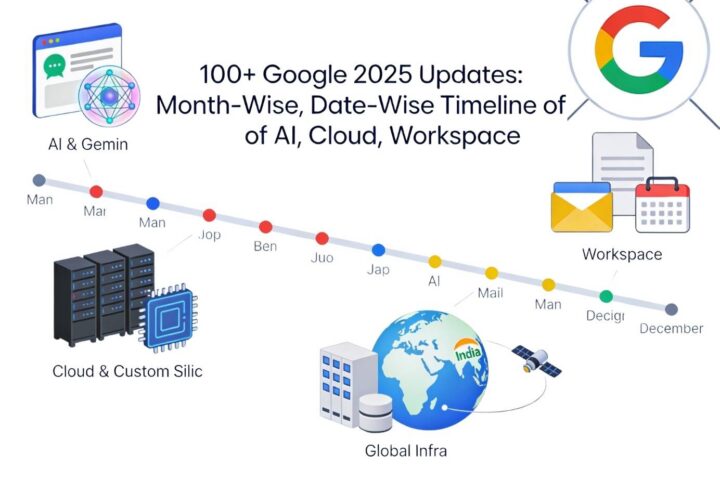Performance appraisals are an essential component of any organization’s talent management process. It provides a structured framework for evaluating employee efficiency, identifying areas for improvement, and promoting career growth.
However, the process is often stressful for both managers and employees alike. It can even lead to decreased motivation and engagement, especially if managers fail to handle it effectively.
In fact, according to recent statistics, 51% of employees feel that their annual reviews are inaccurate. Moreover, 66% of employees said they would quit the job if they didn’t feel appreciated. Four out of ten employees deliberately disengage from their jobs when they receive no or poor feedback.
This situation poses the question-
What are the challenges that HR professionals face during the appraisal process? And how can they turn these challenges into opportunities for success?
Let’s dive in and find out.
Understanding The Challenges
Stating the obvious, appraisal process challenges can impact the employees and the organization as a whole. So, let’s take a closer look at some of the most common challenges.
- Bias and Subjectivity
The presence of bias & subjectivity is the commonly reported challenge of the appraisal process.
Studies have shown that biases can affect a manager’s perception of an employee’s performance, resulting in unfair evaluations and decisions. Managers tend to rate employees who are similar to themselves higher than those who are different, leading to inequitable evaluations.
Such biased evaluations can lead to decreased employee motivation- creating dissatisfaction, a sense of injustice among employees, and higher turnover rates. In addition, it can negatively impact team dynamics and contribute to a toxic workplace culture.
- Lack of Clarity and Communication
When the employee’s job role or expectations are not well-defined, it can lead to confusion & frustration. For instance, in a situation where an employee receives feedback that they need to improve their communication skills, they are not given specific examples or guidance on how to do so.
The employee may feel frustrated and unsure about what they need to improve, which can lead to demotivation and a lack of progress in their performance.
This eventually results in lower employee engagement and productivity, as well as increased stress among employees and managers.
- Ineffective Performance Metrics
Performance metrics are an essential component of HR appraisal processes. However, if these metrics are not properly designed or implemented, they may evaluate employee performance inaccurately.
For example, if performance metrics are not aligned with organizational goals or are overly complex, managers may struggle to gauge accurate performance. As a result, employees will not feel confident in the appraisal process, feel demotivated & may even consider resigning.
Strategies for Overcoming HR Appraisal Process Challenges
While HR appraisal process challenges are significant, organizations can use the following strategies to turn these challenges into opportunities for success.
- Providing Training to Managers
If your managers struggle with providing effective feedback and developing actionable improvement plans, you must focus on their training. It will help them develop the skills and knowledge necessary for fair, accurate, and effective performance evaluations.
According to a study, organizations that provide regular performance management training are more likely to have higher employee engagement and retention rates. Additionally, companies that invest in their managers’ development see a 23% increase in organizational performance.
You can provide training in numerous ways, including in-person workshops, online courses, and peer coaching sessions. You can further define training objectives as “education on the impact of bias on evaluations” or “strategies for reducing bias and increasing objectivity.”
It will ultimately help create a positive work environment free from bias and help to foster a sense of engagement and motivation.
- Encouraging Open Communication and Feedback
When employees feel comfortable expressing their thoughts and concerns, they are more likely to draw a positive conclusion from the appraisal process. It will also help you understand employees’ perspectives and develop personalized improvement plans.
For this, you must hold regular one-on-one meetings, provide a space for anonymous feedback, and conduct surveys. It will create a culture of open communication, ensuring your employees look forward to career growth.
You can also encourage active listening and provide a safe and supportive environment for feedback. Nevertheless, one important question to consider when implementing this strategy is: How can we ensure that feedback is constructive and actionable?
To achieve this, you must provide clear guidelines (metrics) and expectations for feedback. Also, train your manager on how to deliver feedback that is specific, relevant, and actionable.
For example, feedback can be framed in terms of behavior and outcomes rather than personal attributes to avoid offending. In fact, some organizations rely on the 360 Review Process to avail employee feedback from coworkers & peers. This ensures that the review is unbiased and focuses on employee development, explaining where they need to grow.
Ultimately, you will be able to create a supportive work environment that promotes employee engagement, productivity, and success.
- Utilizing Technology
Technology can be a game-changer when it comes to navigating your appraisal process challenges. It is because the latest tools & software aid in automating the process instead of using the conventional method. Thus, it provides a standardized system for all employees, lowering the potential for bias or the halo effect and increasing the accuracy of evaluations.
For example, with performance management software, you can track employee progress and feedback throughout the year instead of just relying on a single annual review. This can help to provide a more accurate and comprehensive picture of their work & efficiency.
Moreover, you can access real-time data and analytics. This can help you identify patterns and trends in employee performance and take quick actions to address any issues or areas for improvement.
- Encouraging Employee Self-Evaluation
It offers your employees a chance to reflect on their own performance and identify their weaknesses & areas for improvement.
For instance, you could ask employees to complete a self-assessment form before their meeting. This form may include questions related to their communication skills, teamwork, or project management abilities. By completing this form, your employees have an idea about their strengths & weakness (after they become a part of your organization). So, to boost their skills, they may ask for additional support or training.
In addition, it will help promote a culture of accountability and ownership. When your employees take responsibility for their performance, they are more likely to take proactive steps to improve and contribute to the organization’s success.
- Implementing a Fair and Objective Performance Evaluation System
Finally, to ensure fairness and objectivity in the performance evaluation process, you must implement a standardized system. Simply put, employees should be evaluated using the same standards or metrics, such as productivity, quality of work, and customer satisfaction.
For example, some organizations use a forced ranking system in which employees are evaluated against a set of criteria and ranked relative to their peers. This system can help to ensure that evaluations are fair & transparent while also providing a clear understanding of employee performance relative to their colleagues.
You can also deploy different programs & tools to ensure the effective implementation of the performance evaluation system.
Benefits of Effective Appraisal Process
By implementing these strategies and creating an effective appraisal process, you can enjoy the following benefits.
- High Employee Retention: The study discovered that 90% of employees who receive regular feedback from their managers are more likely to stay with their current employer. Organizations can create a more engaged and motivated workforce by providing regular feedback, recognition, and opportunities for growth and development.
- Increased Motivation: When your employees know that their work is being evaluated and will receive feedback, they are more likely to feel motivated & improve their performance. This can lead to higher levels of job satisfaction and employee engagement. Not to mention, even if there is a low rating, instead of feeling offended, they work hard to eliminate their weakness.
- Improved Communication: A culture of open communication that fosters trust and transparency. When your employees communicate openly and honestly with their managers, they’ll share ideas, concerns, and feedback more frequently. It will help to improve organizational performance and drive innovation.
- Enhance Performance: It helps align employees’ goals and objectives with the organization’s, ensuring that everyone is working towards the same purposes. As a result, employees understand how their work contributes to the organization’s success and use different tools and resources to succeed and stay productive.
- Effective Decision-Making: By providing managers with more accurate and objective information about employee performance, they can make more informed decisions about promotions, training, and development opportunities. It assists managers with a better understanding of team dynamics and how individual employees fit into the larger picture. Consequently, they make informed decisions about staffing levels and resource allocation, ensuring the organization operates at maximum efficiency.
To Sum It All Up
The appraisal process is not a one-time event but rather an ongoing process of development and growth. So, bear in mind that you must approach it with a positive attitude and a willingness to improve. Doing so can create a workplace culture that values feedback, promotes growth, and ultimately leads to greater success for everyone involved. Hence, all the challenges you have read above will definitely turn into opportunities for success.
Author Bio: Amy Witt is a Freelance content writer at Outreach Monks. He writes to help technology and business professionals at all career stages in their learning and development. Her inclination toward learning new technologies for enhancing business programs keeps her motivated to write.











